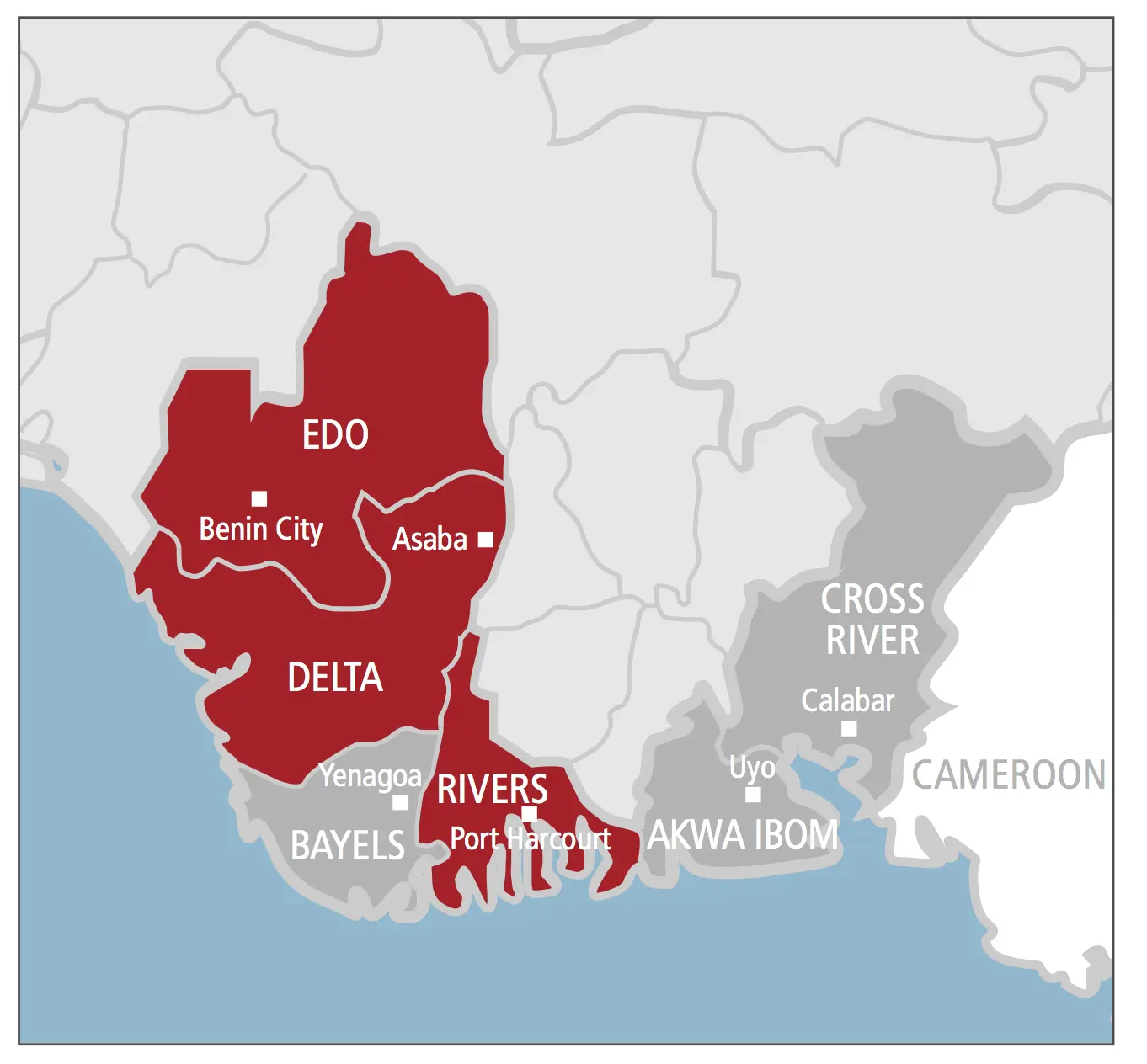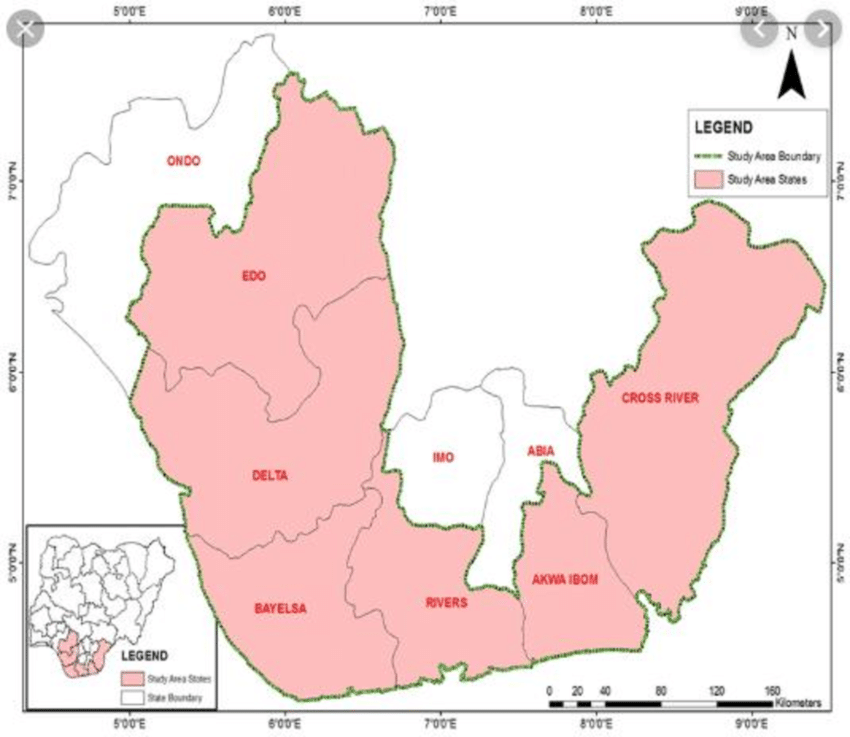South South
Region Dec 29, 2024 Last Modified:Jan 03, 2025

Table of Contents
The South South Region of Nigeria, often referred to as the Niger Delta, is a historically significant and resource-rich area in the southern part of the country. Known for its diversity in culture, languages, and natural resources, this region has played a pivotal role in Nigeria’s economic and cultural development. Its history is deeply intertwined with colonialism, trade, and the struggle for environmental and social justice.
Geography and States of the South South Region

The South South Region comprises six states: Akwa Ibom, Bayelsa, Cross River, Delta, Edo, and Rivers. It is bordered by the Atlantic Ocean to the south, which provides access to major waterways, making it a hub for maritime activities. The region’s geography is characterized by lush mangrove forests, creeks, rivers, and diverse ecosystems, making it one of Nigeria’s most ecologically important areas.
Historical Overview
Historically, the South South Region was a major hub for trade during the pre-colonial and colonial eras. The area was home to ancient kingdoms such as the Benin Empire, which was renowned for its art and sophisticated governance structures, and the Opobo and Kalabari city-states, which were key players in trade along the Niger Delta.
During the transatlantic slave trade, the region served as a major point of departure for enslaved Africans, leading to significant cultural exchanges between Africa, Europe, and the Americas. The colonial period saw the exploitation of the region’s resources, particularly palm oil, which was a highly sought-after commodity during the Industrial Revolution.
Natural Resources and Economic Importance
The South South Region is Nigeria’s oil and gas hub, contributing a significant percentage of the country’s revenue. The discovery of crude oil in Oloibiri, Bayelsa State, in 1956 marked the beginning of Nigeria’s journey as a major oil-exporting nation. However, the dependence on oil has also led to challenges such as environmental degradation, oil spills, and socio-economic inequality.
Beyond oil, the region is rich in other resources like timber, fisheries, and agricultural produce. The fertile land supports the cultivation of crops such as cassava, yams, and oil palm, which are staples in Nigerian cuisine.
Cultural Diversity and Heritage
The South South Region is one of the most culturally diverse areas in Nigeria, with over 40 ethnic groups, including the Ijaw, Ibibio, Itsekiri, Urhobo, Efik, and Edo. Each group has its own unique language, traditions, and festivals. The annual Calabar Carnival in Cross River State, for instance, is a globally recognized cultural event that showcases the richness of the region’s heritage.
Art and craft also thrive in the region, with the Benin bronzes being one of the most famous artifacts from Nigeria. These masterpieces of traditional African art have gained international acclaim and are a testament to the region’s creative legacy.
Challenges and Struggles
Despite its wealth of resources, the South South Region faces numerous challenges. Environmental degradation due to oil exploration and pollution has severely impacted the livelihoods of many communities. The region has also witnessed social unrest and militancy, driven by demands for resource control and equitable distribution of wealth.
In recent years, efforts by the Nigerian government and various stakeholders have aimed to address these issues through policies, environmental remediation projects, and community development initiatives. While progress has been made, a lot remains to be done to fully unlock the region’s potential.
Tourism and Attractions
The South South Region is a treasure trove for tourism enthusiasts. From the Obudu Mountain Resort in Cross River State to the floating settlements of the Ijaw people in Bayelsa, the region offers a mix of natural beauty and cultural experiences. Historical landmarks like the Benin City Wall and the Slave Trade Museum in Calabar provide insight into the region’s past.
The region’s cuisine is another highlight, featuring dishes like Banga soup, Afang soup, and fresh seafood delicacies that reflect the area’s rich culinary traditions.
Conclusion
The South South Region of Nigeria is a dynamic and vibrant area with a rich history, abundant resources, and diverse cultures. Despite its challenges, it remains a cornerstone of Nigeria’s economic and cultural identity. Preserving its heritage, addressing its environmental issues, and fostering sustainable development are essential for unlocking its full potential and ensuring a brighter future for its people.
